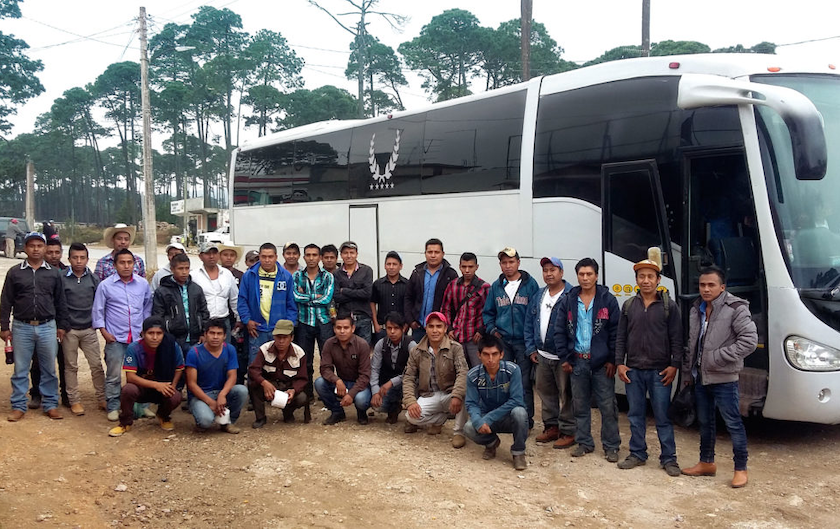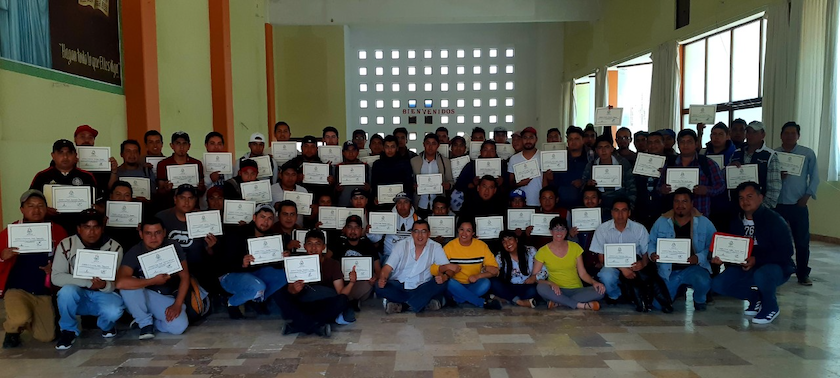What Cierto's ethical recruitment really means for people

One woman stands out in Carolyn Fairman’s memory of Cierto’s early days.
She was one of the first Mexican women to use the nonprofit agriculture labor recruiter six years ago.
And on her journey to work in the U.S., she brought along 50,000 pesos—about $2,391 American dollars—just in case.
“She’d heard that you could often be sold at the border into slavery for prostitution, so she came prepared, and didn’t need the money, obviously,” said Fairman, Cierto’s chief operating officer. “Once her work was done, she returned home to verify to her family and friends that this was a safe process.”
Cierto, which means “sure” in Spanish, is a certified farm labor contractor based in Tacoma, Wash., that recruits, trains and places experienced agricultural workers from Mexico on farms in the U.S.
The way Cierto does recruitment, training and third-party verification to prevent fraud in the process makes it a 5013c nonprofit organization, Fairman said. The contractor receives grants from organizations and foundations with projects focused on sustainable supply chains and labor migration.

Cierto had to build trust over these last six years the old-fashioned way: word of mouth.
The organization started with only 14 workers because most Mexicans didn’t believe there wouldn’t be hidden or surprise fees along the way, as there often is with uncertified recruiters.
Now, Cierto recruits more than 2,000 workers a year.
“Ethical, equitable, responsible, sustainable recruitment: This is language that has not been in the forefront in recruitment until recently,” Fairman said. “That’s because it’s a trend that consumers demand for more transparency.”
Cierto recruits all the way from the community of origin, training from there, bringing the people to the border, across the border, to the farm and back home again. There are no subcontractors.
They partner with organizations in those communities: civil groups, nonprofits, local parishes, other trusted entities. Cierto has those third parties conduct surveys before the workers get to the farm, when they’re on the farm and then after they’ve returned home, “which is when workers feel the safest to speak up if there has been a problem,” Fairman said.
The majority of the 250,000 H-2A workers who come to U.S. to work every year are from Mexico, yet only five contractors in Mexico are registered, she said.
“There’s no way to know if they were charged a fee, were properly informed of where they were going, what the work expectations were to be, any dubious behavior. There’s no oversight or record,” Fairman said. “It may be fine, but there’s no way to prove that.”

At worst, an unscrupulous labor recruiter charges people to have a seat on the bus, charges fees along the way and traps them into slave labor or debt slavery.
Debt slavery, peonage or bonded labor is when workers are forced to pledge their services as security repay a debt, where the terms of the repayment are not clear or reasonable, and the person holding the debt has some control over the laborer.
“The bottom line here is, this is a very vulnerable population, and they may not have any other option. They take these risks and may pay these fees because they are desperate,” Fairman said. “They don’t know what their legal rights are or have access to support. That’s why it’s important that someone has their back.”
Cierto has been recognized for its best practices by the International Labor Organization, a United Nations agency with a mandate to advance social and economic justice through setting international labor standards.
For growers, using a labor recruiting service with these kind of ethics and standards doesn’t have to be purely an altruistic move.
“The return on investment is a reliable, sustainable workforce that’s happy to return to your farm, a professional labor force, brand integrity and increased productivity,” Fairman said.
“We recognize that this is a skilled labor force, and we take that seriously. With this much traceability, you can know that you have absolute integrity throughout the supply chain.”
So yes, growers can reap financial benefits in the long-term.
But also yes, there’s the positive effect on the life of the workers and their loved ones.








